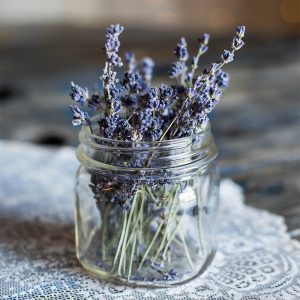Lifestyle Tips and Herbs for Brain Health
Author: Jessica Moffitt, BS, CHES
 A healthy brain is one that performs at an optimal level, with quick reflexes, thought processes, and actions. It utilizes each compartment efficiently and works in a holistic manner to help the body.
A healthy brain is one that performs at an optimal level, with quick reflexes, thought processes, and actions. It utilizes each compartment efficiently and works in a holistic manner to help the body.
Brain health is a combination of addressing our brain in a holistic manner and tailoring our nutrition to each compartment of the brain for optimal functioning. The pieces of the brain work together to cause thoughts, actions, and movements. They help with digestion, our fight or flight response, walking, sleeping, and everything in between.
Like a perfect recipe, there is a proper balance of ingredients for each compartment. When the recipe is correct, the brain yields perfection. When there are extra ingredients that do not belong or when there are missing ingredients, we may end up with something less.
What Ingredients Are Needed?
In an ideal world, we would be able to provide the EXACT recipe for our brain. All ingredients would be present with nothing missing and nothing that doesn’t belong. The list, however, is endless, and varies based on your genetics, current health status, and environment. Despite this, brain health is achieved by regulating the systems within our brain and restoring them back to balance when they are disturbed. For example, helping us relax and calm our mind after a stressful encounter.
What Throws Us Off Balance?
Stress
Stress increases our flight or fight response, which suppresses other areas of the brain.
Sleep
Lack of sleep suppresses the hippocampus which is crucial for storing memories. It also prevents certain hormones from being released, leading to imbalances in the endocrine system. Endocrine imbalances can mean thyroid concerns, fertility concerns, and other hormone-related illnesses.
Toxins
Exposure to environmental toxins such as perfumes, hair sprays, aerosols, machinery chemicals, paints, and and even scented candles can mean toxic exposure for the brain. This increases the number of free radicals in the body. An increase in free radicals means an increase in oxidative stress. When oxidative stress is high (and antioxidants are low), free radicals pull ions from other molecules, degrading cells and the nervous system, and potentially causing cellular destruction and aging. Nutritional toxins such as preservatives, food additives, and food dyes can have similar effects.
Missing Nutrients
Important nutrients like Omega 3s, and amino acids are crucial to brain function, serving as the food, fuel, and catalysts for our systems.
Improper Hydration
Lack of proper hydration throughout the body changes blood flow and blood volume of our bodies. When our circulatory system is functioning subpar, nutrients do not make it to the cellular tissues and toxins are not filtered out.
What Happens When These Needs Are Not Met?
Every body responds differently, but here are some common symptoms that arise when nutritional and recovery needs are not met: mental fog, migraines, headaches, irritability, moodiness, poor memory, impaired judgement, decreased learning, decreased attention span, and decreased overall cognitive performance. Over prolonged periods of time, this can also mean endocrine disruption, infertility, and secondary diseases.
 What Are Some Simple Ways to Get the Brain What It Needs?
What Are Some Simple Ways to Get the Brain What It Needs?
Think of your health on a scale from 0-100. Zero is like a rock that doesn’t move or eat, and 100 is like a unicorn – a mythical creature that no-one has ever really seen. We must be honest about where we are on the scale and where we aspire to be. Every choice we make either moves us closer to or further from unicorn status. In an ideal world, we would eat exactly 100% of our daily recommended values of nutrients. No more, no less. We would have zero toxic exposures and would get a perfect 7 hours of restful sleep each night. Most importantly, we would have the proper amount of daily exercise and healthy social engagement.
An ideal world doesn’t exist and becoming healthy doesn’t happen overnight, but here are some simple tips to get you moving in the right direction.
Lifestyle:
Get Sleep
Your brain goes through thousands of microscopic processes while you sleep. If you don’t sleep, these don’t happen. In addition to herbs to support brain health, you can try white noise machines, blue light filters, and healthy bedtime routines.
Reduce Stress
Do your best to decrease stress whenever possible. More importantly, work on the way your body handles stress. Meditation, yoga, breathing exercises, stress-reducing teas such as chamomile & lavender, and essential oil blends are all great natural options.
Nutrition:
Drink water
Drink water daily. If you are a coffee/soda/juice drinker, drink even more water to balance it out.
Decrease toxins
Avoid processed foods, fast foods, food dyes, artificial ingredients, and added sugars when possible.
Real Nutrients
Try to get most of your nutrition from food. This means looking at portions, servings, and your daily intake of macronutrients and micronutrients.
Supplement the Rest
When an adequate balance of nutrients does not come from diet alone, or when you need an extra boost, supplements can be a great way to help.
 Herbal Support for Optimal Brain Function
Herbal Support for Optimal Brain Function
Please note that herbs, particularly in therapeutic quantities, are not meant for everyone. Certain medical conditions, particularly pregnancy and breastfeeding, have a special list of herbs that are safe. Always consult with your medical provider, or a holistic health provider, before modifying, adding, or removing any supplements, pharmaceuticals, or herbs to your nutrition regimen.
Stress Helpers:
Rhodiola (Golden Root), St. John’s Wort, Yerba Mate, Rosemary, Ginseng, Parsley, Thyme, Turmeric, Ashwagandha, Lemon Balm, Chamomile, Oligomeric
Pro-Cyanins, Flavonoids, Omegas, Pine Bark, Lavender
Sleep Support:
Rhodiola (Golden Root), St. John’s Wort, Rosemary, Ginseng, Turmeric, Ashwagandha, Lemon Balm, Chamomile, Omegas, Pine Bark, Lavender
Free Radicals (Detoxifying) Support:
Yerba Mate, Rosemary, Ginseng, Parsley, Thyme, Turmeric, Ashwagandha, Sage, Lemon Balm, Oligomeric Pro Cyanins, Flavonoids, Omegas, DHA, EPA
Nutrition/Absorption of Nutrients Support:
St John’s Wort (Gut /Brain Axis), Parsley, Thyme (Antimicrobial), Lemon Balm, Sage (Antibacterial). Pine Bark, Pomegranate, Green Tea Extract.
Beyond Herbs
The list doesn’t end here though. There are also many natural teas, essential oils, and tinctures that can be taken to help balance the body. While teas and essential oils (used externally) are generally recognized as safe, it is best to consult with your medical provider, or a holistic health provider, before adding them to your nutrition regimen.
Teas: Chamomile, Lavender, Yerba Mate, Ashwagandha, Lemon Balm
Essential Oils: Rosemary, Sage, Thyme, Parsley, and Lavender
Tinctures: St. John’s Wort, Rhodiola
Better Choices
Remember, that not everything will happen overnight. Each better choice that you make provides fuel for the next, creating a cascade effect that leads you to a healthier, stronger version of you.
References:
Ackerman S. Discovering the Brain. Washington (DC): National Academies Press (US); 1992. 2, Major Structures and Functions of the Brain. Available from: https://www.ncbi.nlm.nih.gov/books/NBK234157/
Agatonovic-Kustrin S, Kustrin E, Morton DW. Essential oils and functional herbs for healthy aging. Neural Regen Res. 2019;14(3):441-445. doi:10.4103/1673-5374.245467
Ayaz M, Sadiq A, Junaid M, Ullah F, Subhan F, Ahmed J. Neuroprotective and Anti-Aging Potentials of Essential Oils from Aromatic and Medicinal Plants. Front Aging Neurosci. 2017; 9:168. Published 2017 May 30. doi:10.3389/fnagi.2017.00168
Gómez-Pinilla F. Brain foods: the effects of nutrients on brain function. Nat Rev Neurosci. 2008;9(7):568-578. doi:10.1038/nrn2421
Iriti M, Vitalini S, Fico G, Faoro F. Neuroprotective herbs and foods from different traditional medicines and diets. Molecules. 2010;15(5):3517-3555. Published 2010 May 14. doi:10.3390/molecules15053517
Medic G, Wille M, Hemels ME. Short- and long-term health consequences of sleep disruption. Nat Sci Sleep. 2017; 9:151-161. Published 2017 May 19. doi:10.2147/NSS.S134864
Shohani M, Badfar G, Nasirkandy MP, et al. The Effect of Yoga on Stress, Anxiety, and Depression in Women. Int J Prev Med. 2018; 9:21. Published 2018 Feb 21. doi: 10.4103/ijpvm.IJPVM_242_16
Jessica Moffitt is the co-owner of Prospectively Healthy, a virtual health company that offers research-based education around nutrition, fitness, and wellness, in bite-sized pieces. Credentials: Certified Health Education Specialist, Bachelor of Science in Public Health, Certified Personal Trainer, and Nutritionist. Follow Jessica on social media @prospectivelyhealthy for recipes, fun facts, and tips for improving your health and wellness, one step at a time.





